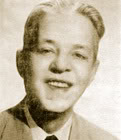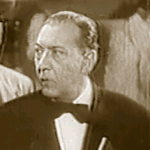UNUSUAL DEATHS IN CUBAN HISTORY.
Death is unpredictable and inevitable. Everyone dies when his time comes, not before or after. However, there are people who died, and not by accident, in unusual circumstances, surprise, when nothing seems to presage the end.
The Cuban poet Julian del Casal, without going any further, died of laughter. Just as I tell it. Indeed, on the night of October 21, 1893, was dining at the home of Dr. Santos Lamadrid, in the Paseo del Prado. Since the end of the meal, one of the guests made a joke, Casal was heard a loud laugh and suddenly, her laughter was interrupted by a violent hemorrhage that ended his life. He was sad and melancholy. Sick. Ruben Dario, on pages dedicated to him in the rare, alludes to his contacts with the poet and cheerful just remember seeing the day when Columbus visited the cemetery. Hence, José Lezama Lima in the poem he dedicated to Casal wrote: “You, who lived as a dead dolphin sleep / you reached to die with laughter.”
Do you remember Julito Diaz and Adolfo Otero, two glories of Cuban vernacular theater? Much also did laugh on the radio and on TV. They were lifelong companions. Together they made long periods in our best theaters and tours abroad and in Mexico said the two fought and achieved military ranks under the command of the legendary Pancho Villa. They maintained a close friendship beyond the stage and it was common to hear jokes about which one would pass away first. The one left alive would dismiss the other’s grief. This I tell you now what Enrique Núñez Rodríguez told many years ago on this same page.
Julito died and the news reached the radio booth where Otero was a program that Enrique wrote. All feared him the news until it decided to do so. Those were the days that made the first forays into space.
Otero listened very seriously the novelty of the passing of his friend and companion, and, without any feeling externalize, merely commented: So Julito entered orbit.
After the program, Otero left the building on Cuban TV and Radio 23 and crossed the street to go to the funeral Knight, which assembled at Julito Diaz. Never saw it. Very near the coffin collapsed. He also had entered orbit.
Alicia’s husband Rico, vernacular actress, died on stage at the Teatro Marti. In a tribute to his role of companion, The Sword, as he was called, could not resist the thrill of applause that she taxed and there was no time to transfer him to hospital. Since that time, had Núñez Rodríguez, she also harbored the desire to die on stage.
Alicia suffered from heart disease, but continued to work until the outbreak of the disease required hospitalization. They approached the holidays this year and the actress pleaded, demanded, her doctor to let her return to the theater, which placed the cardiologist in a terrible alternative. The work could kill her, but keep it out of season, away from your audience could also be fatal. The physician finally relented. Return to the scene with a commitment that would not make physical efforts. This was agreed: Alicia Rico dance a rumba at the end of the show, but there would be no repetition.
Alicia reappeared in Martí. Did the work. She danced the rumba and the curtain fell. He asked the audience, with shouts and applause, to repeat it. He wanted to, but Núñez Rodríguez, director of commissioning, he knew the layout of the cardiologist, refused. He covered her with the worst epithets and Enrique, unperturbed, continued in his refusal. Then the actress looked to the side and asked the teacher Rodrigo Prats, in front of the orchestra, he attacked again with the rumba. Enrique beckoned him not to. He will insist and as Alicia Prats ignored him, threatened to Enrique.
-If you order to conduct the orchestra Rodrigo, I will go out and tell the public that you do not let me dance for them.
And he went on stage to carry out his threat. Enrique, and end, gestured to the orchestra undertook Prats and rumba. They were six repetitions. Eventually, radiant and happy, cried Henry: Hey as are … to me snore!
The next day, the actress went back on stage. But that night, at the request of Henry, who appealed to their nobler feelings, made only two repetitions. At the conclusion of the function and on his way to the lobby, still with the makeup of the work, and Alicia Rico paled suddenly collapsed forever.
Núñez Rodríguez concluded his article also published on this page:
“I will never forgive you for bringing persuaded to limit its repetitions of the rumba. Stopped him with that decision, he died as he had desired to write the logical end of their beautiful love story. ”
Abruptly ended the existence of Carlitos Aguirre. He was the son of a colonel of Independence and the clever nephew Orestes Ferrara. He had completed his studies and family wanted to congratulate him with a trip to Spain. Once there, attended a bullfight. The show went as usual. Only when that matador’s sword stuck in the neck of the beast, the bull jumped, shook and the gun flew through the air to dig into the body of Carlitos Aguirre and be killed.
CiroBianchiRoss/Excerpts/InternetPhotos/ www.thecubanhistory.com
The Cuban History/ HOLLYWOOD.
Arnoldo Varona, Editor.
MUERTES INSOLITAS EN LA HISTORIA DE CUBA
La muerte es algo impredecible y también inevitable. Todo el mundo se muere cuando le llega la hora, no antes ni después. Sin embargo, hay gente que fallece, y no precisamente por accidente, en circunstancias inusitadas, sorpresivas, cuando nada parece presagiar el final.
El poeta cubano Julián del Casal, sin ir más lejos, murió de risa. Así como lo cuento. En efecto, en la noche del 21 de octubre de 1893, cenaba en la casa del doctor Santos Lamadrid, en el Paseo del Prado. Ya al final de la comida, uno de los comensales hizo un chiste, Casal dejó escuchar una estruendosa carcajada y, de pronto, su risa se vio interrumpida por una violenta hemorragia que puso fin a su existencia. Era un hombre triste y melancólico. Enfermo. Rubén Darío, en las páginas que le dedicó en Los raros, alude a sus contactos con el poeta y recuerda haberlo visto alegre solo el día en que visitaron el cementerio de Colón. De ahí que José Lezama Lima en el poema que dedicó a Casal escribiera: “Tú, que viviste como un delfín muerto de sueño / alcanzaste a morir muerto de risa”.
¿Recuerdan a Julito Díaz y Adolfo Otero, dos glorias del teatro vernáculo cubano? Mucho hicieron reír asimismo en la radio y en la TV. Habían sido compañeros de toda la vida. Juntos hicieron largas temporadas en nuestros mejores teatros y giras por el extranjero y se decía que en México los dos pelearon y alcanzaron grados militares bajo las órdenes del legendario Pancho Villa. Sostenían una estrecha amistad más allá de los escenarios y era habitual escucharlos bromear sobre cual de los dos fallecería primero. El que quedara vivo debía despedir el duelo del otro. Esto que contaré ahora lo relató Enrique Núñez Rodríguez hace muchos años en esta misma página.
Murió Julito y la noticia llegó a la cabina de radio donde Otero hacía un programa que Enrique escribía. Todos temían darle la noticia hasta que se decidieron a hacerlo. Eran los días en que se hacían las primeras incursiones al cosmos.
Otero escuchó muy serio la novedad del fallecimiento de su amigo y compañero, y, sin exteriorizar sentimiento alguno, se limitó a comentar: Así que Julito entró en órbita.
Terminado el programa, Otero salió el edificio de la TV y la Radio cubanas y cruzó la calle 23 para dirigirse a la funeraria Caballero, donde velaban a Julito Díaz. No llegó a verlo. Muy cerca del ataúd se desplomó. Él también había entrado en órbita.
El esposo de Alicia Rico, actriz del vernáculo, murió en el escenario del teatro Martí. En una función de homenaje a su compañera, El Espada, como le llamaban, no pudo resistir la emoción de los aplausos que a ella le tributaban y no hubo tiempo de trasladarlo al hospital. Desde aquel momento, contaba Núñez Rodríguez, ella también abrigó el deseo de morir en el escenario.
Alicia sufría de una cardiopatía, pero siguió trabajando hasta que el recrudecimiento de la dolencia exigió su hospitalización. Se acercaban las fiestas de fin de año y la actriz rogó, exigió, a su médico que la dejara volver al teatro, con lo que colocó al cardiólogo en una terrible alternativa. El trabajo podía matarla, pero mantenerla fuera de temporada, alejada de su público podía ser también fatal. Transigió al fin del galeno. Regresaría a la escena con el compromiso de que no realizaría esfuerzos físicos. Así quedó pactado: Alicia Rico bailaría una rumba al final del espectáculo, pero no habría repeticiones.
Reapareció Alicia en el Martí. Hizo la obra. Bailó la rumba y cayó el telón. Pidió el público, con gritos y aplausos, que la repitiera. Quiso hacerlo, pero Núñez Rodríguez, director de la puesta, que conocía la disposición del cardiólogo, se negó. Lo cubrió ella con los peores epítetos y Enrique, imperturbable, se mantuvo en su negativa. Entonces la actriz se asomó al lateral y pidió al maestro Rodrigo Prats, al frente de la orquesta, que atacara de nuevo con la rumba. Enrique le hizo señas para que no lo hiciera. Volvió Alicia a insistir y como Prats no le hacía caso, amenazó a Enrique.
-Si no le ordenas a Rodrigo que dirija la orquesta, voy a salir a decirle al público que ustedes no me dejan bailar para ellos.
Y se encaminó al escenario para cumplir su amenaza. Enrique, ya sin salida, hizo un gesto a Prats y la orquesta acometió la rumba. Fueron seis las repeticiones. Al final, radiante y satisfecha, gritó a Enrique: Oye como están… ¡A mí me roncan!
Al día siguiente, la actriz salió de nuevo a escena. Pero esa noche, a petición de Enrique, que apeló a sus sentimientos más nobles, hizo solo dos repeticiones. Al concluir la función y cuando se dirigía al vestíbulo, todavía con el maquillaje de la obra, Alicia Rico palideció súbitamente y se desplomó para siempre.
Concluía Núñez Rodríguez su crónica publicada también en esta página:
“Nunca me perdonaré el haberla convencido para que limitara sus repeticiones de la rumba. Impedí, con aquella decisión, que muriera tal y como lo había deseado y que escribiera el lógico final de su bonita historia de amor”.
De manera abrupta terminó la existencia de Carlitos Aguirre. Era hijo de un coronel de la Independencia y sobrino político del astuto Orestes Ferrara. Había concluido sus estudios y la familia quiso congratularlo con un viaje a España. Ya allí, concurrieron a una corrida de toros. El espectáculo transcurrió como siempre. Solo que cuando aquel matador metió la espada en la cerviz de la bestia, el toro saltó, se sacudió y el arma voló por el aire hasta clavarse en el cuerpo de Carlitos Aguirre y provocarle la muerte.
CiroBianchiRoss/Excerpts/InternetPhotos/ www.thecubanhistory.com
The Cuban History/ HOLLYWOOD.
Arnoldo Varona, Editor.






